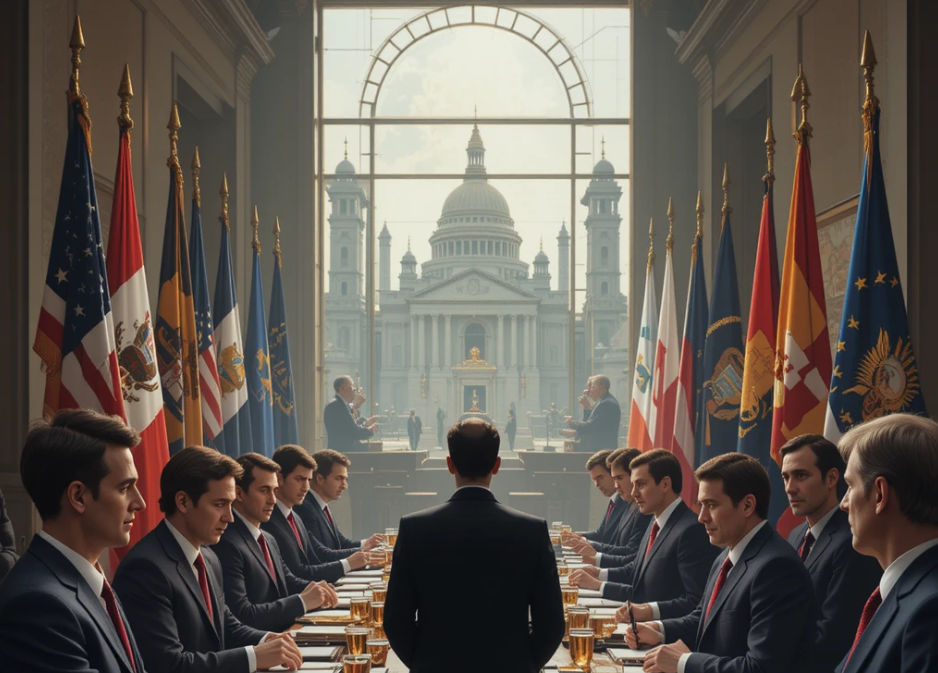
Crafts of Diplomacy and World Politics
The craft of diplomacy is deeply intertwined with the knowledge of world politics and history due to several critical reasons. Diplomacy, at its core, is the art and practice of managing international relations, negotiating agreements, and resolving conflicts between states and other global actors. To perform these functions effectively, diplomats must possess a nuanced understanding of the political, historical, and cultural contexts in which they operate.
History provides a repository of past events, decisions, and outcomes that inform current diplomatic strategies. For example, the Treaty of Westphalia (1648) established the principles of state sovereignty, which remain foundational to modern international relations. Diplomats who understand such historical milestones can better navigate contemporary issues like territorial disputes or sovereignty claims.
History is replete with examples of diplomatic successes and failures. The failure of the League of Nations to prevent World War II, for instance, underscores the importance of creating robust international institutions, as seen in the establishment of the United Nations. Diplomats who study these events can avoid repeating past errors and build on successful strategies.
World politics is characterized by shifting power dynamics, alliances, and rivalries. Diplomats must understand these dynamics to anticipate the actions of other states and craft effective policies. For example, during the Cold War, the bipolar world order required diplomats to navigate the tensions between the U.S. and the Soviet Union. Today, the rise of multipolarity and the influence of emerging powers like China and India require a different diplomatic approach.
In an increasingly interconnected world, issues like climate change, trade, and terrorism transcend national borders. Diplomats must understand the political and economic interdependencies between states to negotiate solutions that address shared challenges.
Diplomacy often involves engaging with cultures and societies with distinct historical experiences and values. For instance, understanding the historical significance of colonialism in Africa or Asia is crucial for Western diplomats working in these regions. Missteps due to cultural insensitivity can undermine trust and derail negotiations.
Many international conflicts are rooted in historical grievances. For example, the Israeli-Palestinian conflict is deeply tied to historical events like the Balfour Declaration and the 1948 Arab-Israeli War. Diplomats who understand these historical roots are better equipped to mediate and propose viable solutions.
Diplomats often use historical narratives to persuade or justify their positions. For example, invoking the Marshall Plan’s success in post-World War II Europe can be a powerful argument for international aid programs. Conversely, understanding the historical context of an adversary’s position can help diplomats find common ground.
Knowledge of a country’s history and political system can help diplomats build rapport and trust with their counterparts. For instance, a diplomat negotiating with Japan might reference the post-World War II U.S.-Japan alliance to emphasize shared interests and mutual respect.
History often reveals patterns and trends that can inform future predictions. For example, the rise and fall of empires, the cyclical nature of economic crises, and the recurrence of geopolitical rivalries provide valuable insights for diplomats planning long-term strategies.
- World politics is constantly evolving, and diplomats must adapt to new realities. Understanding historical transformations, such as the end of colonialism or the collapse of the Soviet Union, helps diplomats anticipate and respond to future shifts in the global order.
- History offers lessons on the ethical dimensions of diplomacy. The Nuremberg Trials, for instance, established principles of accountability for war crimes, influencing modern international law. Diplomats who are aware of such precedents can advocate for policies that uphold justice and human rights.
Diplomacy often involves balancing national interests with moral considerations. For example, the decision to intervene in humanitarian crises, as in Rwanda or Bosnia, requires an understanding of both the historical context and the political implications. Diplomats frequently engage with international organizations like the United Nations, the World Trade Organization, and NATO. These institutions have their own histories and evolving roles in global governance. Understanding their origins, mandates, and past actions is essential for effective participation.
The history of bilateral relations between countries often shapes their current interactions. For example, the long-standing rivalry between India and Pakistan over Kashmir requires diplomats to navigate a complex historical backdrop when mediating disputes.
While the connection between diplomacy, world politics, and history is undeniable, it is important to recognize that historical knowledge alone is insufficient. Diplomats must also critically analyze how historical narratives are constructed and used, as these narratives can be manipulated to serve political agendas. Additionally, the rapid pace of globalization and technological change means that diplomats must continuously update their knowledge and adapt to new realities.
So, the craft of diplomacy is inseparable from the knowledge of world politics and history because it provides the context, tools, and insights necessary to navigate the complexities of international relations. Diplomats who are well-versed in these areas are better equipped to build bridges, resolve conflicts, and promote peace in an ever-changing world.